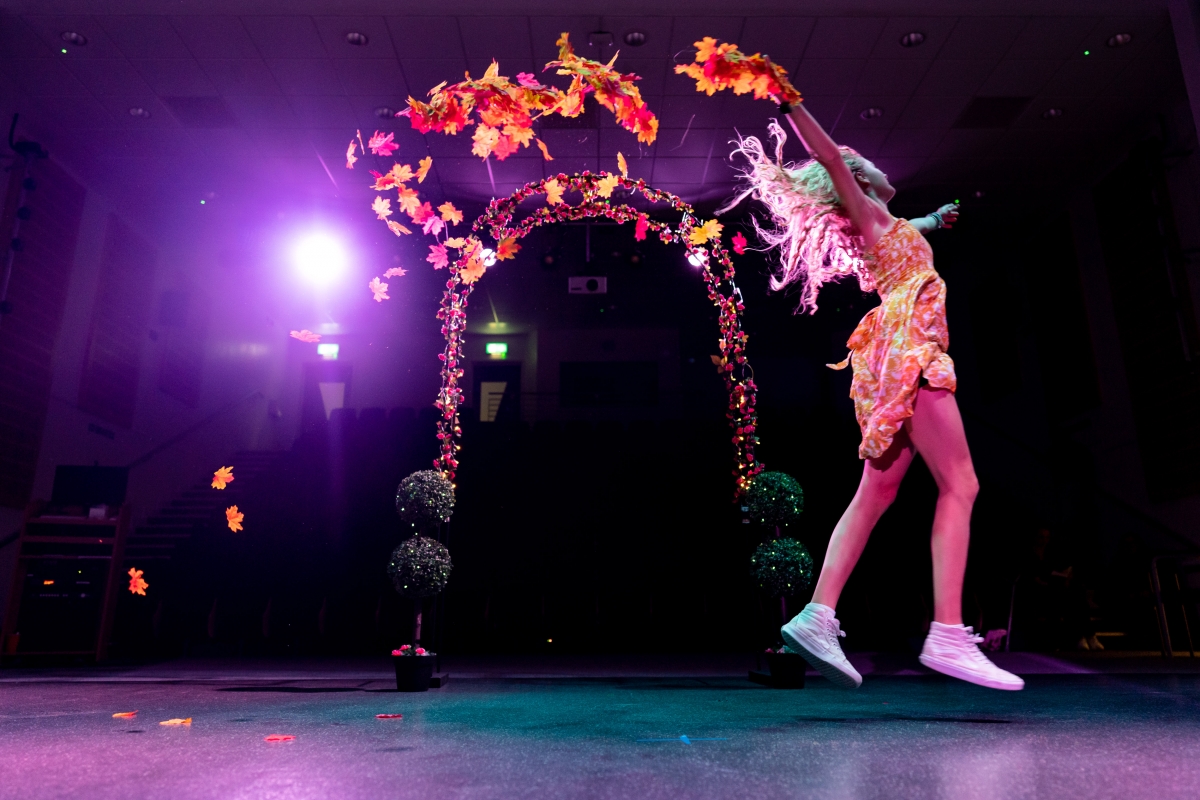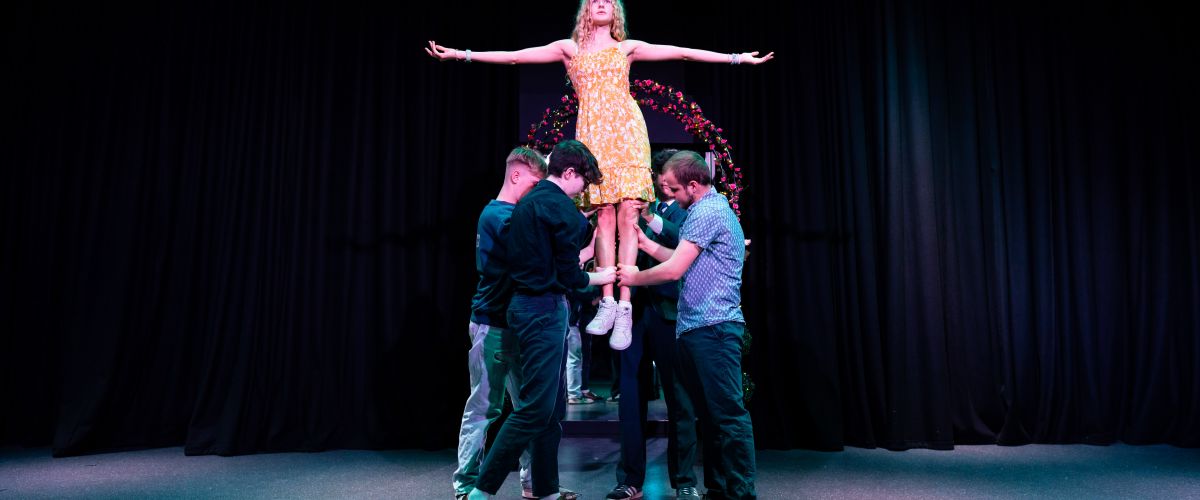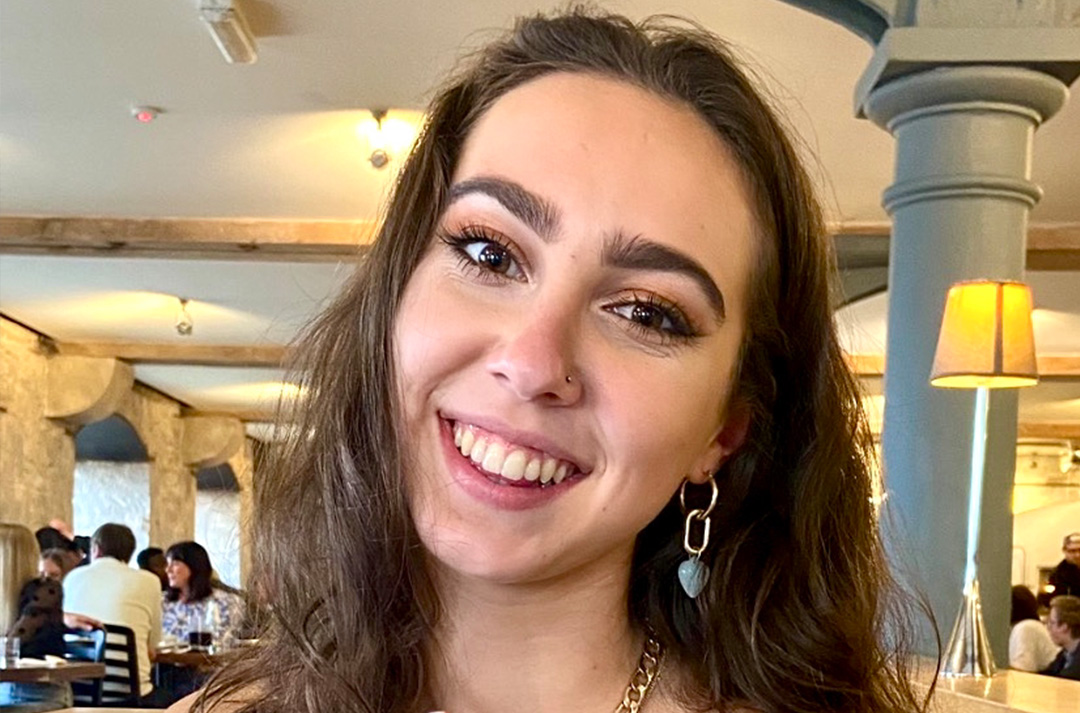A Level Drama & Theatre Studies
If you enjoy learning about all aspects of drama and theatre then this course will really suit you. It is a practical course that explores the theoretical work of playwrights, directors and theatre companies that make theatre so exciting and diverse.
Key information
Drama & Performing Arts / Full Time / A Levels and Equivalent

Why choose this course?
The Drama and Theatre Studies course will provide you with the necessary skills to analyse and appreciate any play text or performance recognising how historical and cultural contexts inform all areas of theatre making whilst developing your performance skills. We have an excellent learning environment; our classes take place in a drama rehearsal room or a theatre space. This dedicated space encourages you to develop your understanding of professional working theatre.
We approach the study of Drama and Theatre from three key viewpoints:
Actor - As an actor you will develop your acting skills - interpretation of character, exploration of style, voice, physicality and stage relationships with others.
Director - As a director you will develop your interpretative skills when working with plays. You will instigate ideas for performance and develop a directorial vision when working on original material or text.
Designer - As a designer you will develop your design skills and consider how design impacts upon an audience. You will develop ideas for set creation, costume, lighting and sound design.
This course is designed to provide a balance between performance, research, analysis and design. It is a collaborative course and will help you to develop important communication skills, confidence, imagination, creativity and promote personal and social development. Group work is at the heart of the course and you will enjoy working closely with others, responding to and giving supportive feedback.
What will I learn?
Component 1: Theatre Workshop – Assessed Performance + Written Coursework
This will be completed in the first year of the course. The aim of this component is to allow you to study the techniques of one theatre practitioner or company then apply your knowledge practically in performance. You can work as an actor or designer and you will be working as part of a group on creation, development and performance. In addition to your performance, you will produce a portfolio – a written and visual account of your process in making the work, research about the practitioner/company and how you applied this knowledge. This component encourages you to see yourself as a theatre maker being inspired by professional theatre practice.
Component 2: Text in Action – 2 Assessed Performances + Written Coursework
This is another practically assessed unit by a visiting examiner and will be completed in the second year of the course. You will work in a small group to produce two performances from the perspective of actor or designer. One performance will be an extract from a text and the other will be an original devised performance taking inspiration from a second theatre practitioner or company. These two performances will be linked by a theme chosen from a list supplied by the exam board. This component will be accompanied by a portfolio – a written and visual account of how your group made the work, an evaluation of your skills development and any research that contributed to your understanding.
Component 3: Text in Performance – Written Exam + Classroom Exploration
For this component you will study two plays over two years. They will be from different periods in history and contrast in terms of style, context, acting and production challenges. The plays will be explored practically as well as through reading and research. This component is assessed through a written exam at the end of the two years and will involve you understanding the plays from the perspective of actor, director and designer.
You may also take a stand alone AS in this subject, which will include all aspects of the Theatre Workshop component, one play studied from Text in Performance, plus a live theatre written review.
Assessment Arrangements
Drama is a subject that requires commitment and dedication; you will be working individually, in pairs, small groups and whole group on assessment tasks and classwork. Your achievement in this subject is dependent upon excellent attendance, punctuality and effort. You will learn in a friendly atmosphere, using a variety of assessment methods:
You will be assessed regularly on written work that is conducted either as homework or under timed conditions in class and given feedback on your progress.
Discussions, presentations and sharing performance work with the class are a vital part of skill building and development; you will be expected to take a full part in these when studying a text in class.
You will participate in practical sessions developing your performance skills: rehearsing scenes, exploring themes, styles and characters.
You will review your own performance in 1:1 sessions with your tutor.
You will be formally examined on each unit that you study either by your teacher, a visiting examiner or in a written exam at the end of the second year, although mock exams will be administered at the end of the first year to ensure progress.
Information & Support
We encourage all students to read widely to expand their knowledge of theatre styles and practices. We also aim to see a range of diverse performances to develop understanding of performance and participate in workshops with established theatre companies. We have a detailed Sharepoint site with extensive visual, audio and text based resources to support independent learning and underpin subject knowledge from the classroom.
What will I need?
Five GCSEs at grade 4 or above including grade 6 in Drama or grade 6 in an English subject if you haven’t taken Drama. An interest in all aspects of Drama – performance, directing, studying plays and design is essential.
Where will it take me?
The skills of research, analytical and reflective writing, presentation and personal communication skills that you will develop on this course are transferable to all areas of further study. Our students have the option of university to study a degree subject such as Drama or English, Media, Education and Humanities based subjects or a vocational route such as Drama School to study acting, musical theatre or design. Drama is also an excellent subject to complement many courses, such as English Literature, Dance, Classics, any Media related course and Education.
Additional Information
The Drama department runs several extracurricular activities throughout the year. Trips can range from Theatre companies performing in Cornwall, Devon and also further afield. Bristol, London, Paris and New York are all residential opportunities for our students to develop their own performance skills and also provide opportunities for cultural exploration. We have an annual residential trip, which is chosen to support the live production element of the two year course. Depending on the examination boards choice of set text, a relevant trip will be planned to one of the many Cities across the globe.
Awarding Body:
WJEC - Eduqas
To obtain more information about this course, please call: 01208 224000 or email enquiry@callywith.ac.uk

